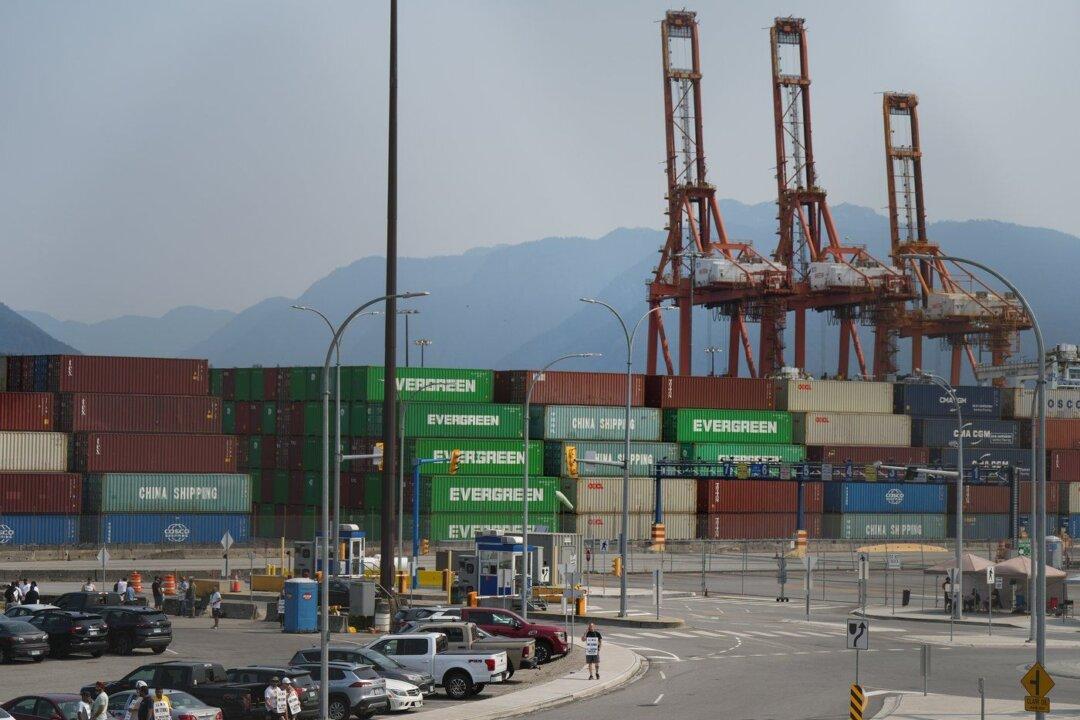Striking port workers will rally near the Vancouver waterfront to mark their sixth day on the picket line as they seek a new contract with the BC Maritime Employers Association.
About 7,400 members of the International Longshore and Warehouse Union have been off the job since Canada Day to back demands for improved wages and provisions against contracting out and automation.





